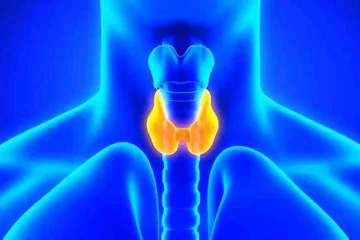When the body doesn’t receive adequate vitamin D from sources like sunlight or diet, vitamin D deficiency arises. This deficiency can lead to reduced bone density, heightened risk of osteoporosis, and increased instances of broken bones.
Vitamin D is often referred to as the sunshine vitamin since it’s produced in your body from cholesterol when your skin interacts with sunlight. Recently, this vitamin has been in the spotlight for its significance in immune health, particularly in relation to COVID-19. Beyond that, it’s vital for bone health and several essential processes within your body.
Typically, adults need between 1,500–2,000 international units (IU) of vitamin D each day. Although foods like fatty fish and fortified dairy products offer some amount of this vitamin, solely relying on diet can be challenging. Consequently, vitamin D deficiency ranks among the top nutritional shortfalls globally. This piece delves into the importance and nuances of vitamin D.
What makes vitamin D Important?
Vitamin D, a fat-soluble vitamin, is pivotal for the optimal functioning of your body, encompassing areas like bone health and immune defense. It’s also believed to ward off cancer and shield against various chronic ailments such as:
- bone loss
- depression
- type 2 diabetes
- heart disease
- multiple sclerosis
Around the world, approximately 1 billion individuals exhibit deficient blood levels of this vitamin.
One study analysis revealed that nearly 42% of U.S. adults are deficient in vitamin D. Among Hispanic adults, this percentage rises to close to 63%, and it escalates to 82% for African American adults.
What are Signs and symptoms of vitamin D Deficiency?
Vitamin D deficiency might not be immediately apparent, as symptoms can remain dormant for months or even years. In some cases, there might be no symptoms whatsoever.
However, understanding the potential signs and symptoms remains crucial.
Frequent illness or infections
Falling ill frequently, especially from colds or flu, could be attributed to deficient vitamin D levels. Several prominent observational studies indicate a connection between such a deficiency and respiratory infections like colds, bronchitis, and pneumonia.
Multiple research endeavors suggest that consuming up to 4,000 IU of vitamin D daily can diminish the chances of getting respiratory infections.
Bone and Backpain discomfort
Bone pain, particularly in the lower back, might be indicative of deficient vitamin D levels.
Vitamin D plays a pivotal role in bone health by enhancing calcium absorption in the body.
A specific study involving 98 adults who suffered from lower back pain found a correlation between decreased vitamin D levels and intensified pain. Yet, a comprehensive research review revealed that this correlation wasn’t consistently observed in other similar studies.
An analysis of 81 distinct studies observed that individuals with conditions like arthritis, muscle discomfort, and chronic widespread pain typically exhibited lower vitamin D levels compared to those without these conditions .
However, the topic warrants further research.
Feeling of exhaustion and weariness
Feeling of exhaustion and weariness Persistent tiredness can have various origins, and one potential source is a deficiency in vitamin D.
While reasons like stress, depression, and sleep disorders are often considered, vitamin D deficiency frequently goes unnoticed as a plausible reason for fatigue.
A particular study involving 480 elderly individuals correlated fatigue symptoms with vitamin D deficiency.
Additionally, research conducted on 39 children drew a link between low vitamin D concentrations and subpar sleep quality, reduced sleep duration, and later bedtimes.
An observational study involving female nurses highlighted a significant relation between self-reported fatigue and diminished vitamin D levels. Remarkably, 89% of these participants displayed a deficiency in the vitamin.
Notably, multiple pieces of research indicate that vitamin D supplementation can alleviate fatigue intensity in those who are deficient.
In recent times, a deficiency in vitamin D has been associated with a heightened risk of contracting COVID-19 and enduring its severe outcomes. However, it’s essential to emphasize that ingesting vitamin D supplements, regardless of the dosage, won’t offer immunity against COVID-19.
Mood Disorders
There’s a connection between vitamin D deficiency and depression, notably prevalent among the elderly. However, findings from various studies present mixed conclusions.
While the impact of vitamin D supplementation varies, several reviews have determined that it can alleviate depression.
Yet, a deeper exploration is required to fully grasp the nexus between vitamin D and depression.
Bone Deterioration
Vitamin D is instrumental in calcium uptake and bone regulation.
It’s noteworthy that concurrent intake of vitamin D and calcium optimizes absorption in the body.
A decline in bone mineral density signifies a depletion of calcium and other essential minerals from the bones. This condition exposes older individuals, notably women, to a heightened risk of bone fractures.
A comprehensive observational research, encompassing over 1,100 middle-aged women in menopause or post-menopause stages, identified a significant correlation between diminished vitamin D concentrations and reduced bone mineral density.
Yet, investigations into the effects of vitamin D supplement therapy among self-reliant elderly individuals have produced varied conclusions. While certain studies indicate advantages like diminished muscle discomfort, others haven’t conclusively established its efficacy in preventing fractures stemming from bone deterioration.
Losing Hair
Dietary components and specific nutrients can influence hair well-being.
While stress often culminates in hair shedding, profound hair loss might stem from underlying medical conditions or a deficiency in essential nutrients.
A correlation exists between hair loss in women and deficient vitamin D levels, although comprehensive research is sparse.
Specifically, there’s a documented relationship between decreased vitamin D levels and alopecia areata, an autoimmune disorder marked by intense hair loss.
One research involving individuals with alopecia areata indicated that those with diminished vitamin D concentrations experienced more pronounced hair loss. Another investigation with 48 participants diagnosed with the same condition demonstrated that topical application of a vitamin D analogue for a span of 12 weeks markedly improved hair regrowth.
Furthermore, an analytical review deduced that vitamin D levels might exhibit an inverse correlation with non-scarring hair loss, suggesting that individuals with higher vitamin D concentrations tend to experience lesser hair loss and vice versa .
Muscular Discomfort
Pinpointing the exact origins of muscle pain can be challenging. Yet, research indicates that a deficiency in vitamin D might be a contributing factor.
In a prior study, it was determined that 71% of individuals with persistent pain had low levels of this vitamin.
Nerve cells known as nociceptors, responsible for detecting pain, contain the vitamin D receptor. The involvement of this vitamin in the body’s pain signaling routes might influence the manifestation of chronic pain.
Several research pieces highlight that administering high doses of vitamin D supplements can alleviate different pain types in those deficient in the vitamin.
Increased Weight
Obesity is associated with a higher likelihood of vitamin D deficiency.
A research study involving adults identified a potential association between diminished vitamin D levels and the presence of abdominal fat as well as weight gain. Notably, these effects appeared more significant in men.
Though vitamin D deficiency often coincides with obesity, comprehensive research is still required to ascertain if supplementation with this vitamin can deter weight gain.
Addressing a Vitamin D Deficiency
When faced with a vitamin D deficiency, the typical remedy involves supplements. If a healthcare expert identifies a deficiency in your system, they might suggest the subsequent courses of action.
Supplements
Oral supplements are the primary method for treating a vitamin D deficiency. These can be readily purchased without a prescription, but it’s advisable to consult a physician for appropriate dosage guidelines.
Magnesium plays a role in activating vitamin D. Therefore, incorporating this mineral might be beneficial as well.
In cases of pronounced deficiency, a healthcare professional might prescribe high-dose vitamin D, which can be as potent as 50,000 IU. In certain scenarios, vitamin D injections might also be an option your doctor explores.
Conclusion
The prevalence of vitamin D deficiency is unexpectedly high, yet its manifestations can be understated and ambiguous. This makes it challenging to discern if the root of your issues is a deficiency or another medical concern.
Should you suspect a deficiency, it’s prudent to consult with a healthcare professional and request a blood test.
Typically, vitamin D deficiency is remedied with supplements. However, to determine the correct dosage, you might require guidance from a doctor. Enhancing your exposure to sunlight and consuming foods rich in vitamin D, such as fatty fish and enriched dairy items, are beneficial measures.
Taking steps to rectify a vitamin D deficiency is essential and can offer long-term advantages for your well-being.




